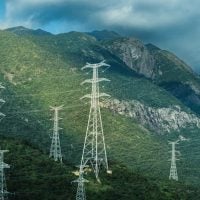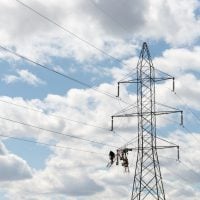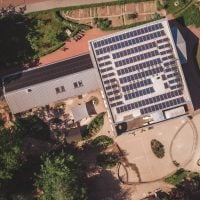In an era where climate change poses a significant threat to our planet, clean energy initiatives have become paramount. Clean energy grants serve as a vital resource for non-governmental organizations (NGOs) aiming to implement sustainable practices and promote renewable energy solutions. These grants not only provide financial support but also foster innovation and collaboration among various stakeholders, including universities, government agencies, and private sectors.
By securing clean energy grants, NGOs can develop projects that reduce carbon footprints, enhance energy efficiency, and contribute to a more sustainable future. Moreover, clean energy grants often come with the added benefit of elevating an NGO’s credibility and visibility. When organizations are awarded grants, it signals to potential partners and donors that their projects are viable and impactful.
This recognition can lead to further funding opportunities and collaborations, creating a ripple effect that amplifies the reach and effectiveness of clean energy initiatives. Understanding the importance of these grants is the first step for NGOs looking to make a meaningful impact in the realm of clean energy. Are You Working on Solar Innovation or Clean Energy Access? Join us to receive updates.
Key Takeaways
- Clean energy grants are important for advancing sustainable energy solutions and reducing environmental impact.
- Potential university partners can provide valuable research and expertise in the clean energy field.
- Building strong relationships with university departments is crucial for successful collaboration on clean energy projects.
- Navigating the grant application process requires attention to detail and a clear understanding of the requirements.
- Leveraging university research and expertise can lead to innovative solutions and advancements in clean energy technology.
Identifying Potential University Partners
Identifying potential university partners is a crucial step in leveraging clean energy grants effectively. Universities are often at the forefront of research and innovation in renewable energy technologies, making them ideal collaborators for NGOs. To begin this process, NGOs should conduct thorough research to identify institutions that align with their mission and objectives.
This involves looking for universities with strong environmental science or engineering programs, as well as those that have a history of engaging in community-based projects. Once potential partners are identified, NGOs should assess the specific faculty members or research centers within those institutions that focus on clean energy. Engaging with professors who have published relevant research or who are involved in ongoing projects can provide valuable insights and open doors for collaboration.
By establishing connections with the right individuals, NGOs can tap into a wealth of knowledge and resources that can enhance their clean energy initiatives.
Building Relationships with University Departments

Building relationships with university departments is essential for fostering successful collaborations. This process begins with outreach—NGOs should initiate contact with faculty members or department heads to introduce their organization and express interest in potential partnerships. A personalized approach is key; NGOs should highlight specific projects or initiatives that align with the university’s research interests, demonstrating a genuine commitment to collaboration.
Once initial contact is made, NGOs should seek opportunities for engagement beyond email exchanges. Attending university events, seminars, or workshops can provide valuable networking opportunities and allow NGOs to showcase their work. Additionally, inviting university representatives to participate in community events or project launches can help solidify relationships and create a sense of shared purpose.
By investing time and effort into relationship-building, NGOs can establish a foundation of trust and collaboration that will benefit both parties in the long run.
Navigating the Grant Application Process
Navigating the grant application process can be daunting, but with careful planning and organization, NGOs can increase their chances of success. The first step is to thoroughly review the grant guidelines and requirements to ensure alignment with the organization’s mission and project goals. This includes understanding eligibility criteria, funding limits, and deadlines.
Creating a checklist can help keep track of necessary documents and information needed for the application. Once the groundwork is laid, NGOs should focus on crafting a compelling narrative that clearly articulates the project’s objectives, methodology, and expected outcomes. It is essential to demonstrate how the project aligns with the funder’s priorities and how it will contribute to advancing clean energy solutions.
Engaging university partners in this process can enhance the proposal by incorporating their expertise and research findings, which can lend credibility to the application. Additionally, seeking feedback from colleagues or mentors before submission can provide valuable insights and improve the overall quality of the proposal.
Leveraging University Research and Expertise
One of the most significant advantages of partnering with universities is access to cutting-edge research and expertise in clean energy technologies. NGOs should actively seek ways to leverage this knowledge throughout their projects. This could involve collaborating on research studies, utilizing university facilities for testing new technologies, or engaging students in hands-on learning experiences related to clean energy initiatives.
For example, an NGO focused on solar energy might partner with a university’s engineering department to conduct feasibility studies on solar panel installations in underserved communities. By involving students in data collection and analysis, both parties benefit: students gain practical experience while the NGO receives valuable insights that inform project implementation. Such collaborations not only enhance project outcomes but also contribute to workforce development in the clean energy sector.
Establishing Clear Goals and Expectations

Establishing clear goals and expectations is vital for ensuring that all parties involved in a partnership are aligned and working towards common objectives. NGOs should engage in open discussions with university partners to define project goals, timelines, roles, and responsibilities. This collaborative approach fosters transparency and accountability, reducing the likelihood of misunderstandings or conflicts down the line.
To facilitate this process, NGOs can create a project charter or memorandum of understanding (MOU) that outlines key objectives and expectations for both parties. This document serves as a reference point throughout the project lifecycle, helping to keep everyone focused on shared goals. Regular check-ins and progress updates can further reinforce commitment and ensure that any challenges are addressed promptly.
Communicating Effectively with University Partners
Effective communication is the cornerstone of successful collaborations between NGOs and universities. Establishing regular communication channels—whether through meetings, emails, or collaborative platforms—ensures that all stakeholders remain informed about project developments and any emerging challenges. NGOs should prioritize transparency in their communications, sharing both successes and setbacks openly.
Additionally, adapting communication styles to suit different audiences is essential. While academic partners may prefer detailed reports and data-driven discussions, community stakeholders may benefit from more accessible language and visual presentations. By tailoring communication strategies to meet the needs of various audiences, NGOs can foster stronger relationships and enhance collaboration.
Managing Budgets and Resources
Managing budgets and resources effectively is critical for the success of any project funded by clean energy grants. NGOs must develop detailed budgets that account for all anticipated expenses, including personnel costs, materials, travel, and indirect costs associated with project implementation. Collaborating with university partners can provide insights into cost-effective strategies and resource-sharing opportunities.
Regularly monitoring budget expenditures against projected costs is essential for staying on track financially. NGOs should establish financial management practices that include tracking expenses, reconciling accounts, and preparing for audits if required by grantors. By maintaining financial transparency and accountability, NGOs can build trust with funders and university partners alike.
Ensuring Compliance with Grant Requirements
Compliance with grant requirements is non-negotiable for NGOs seeking to maintain funding relationships and uphold their reputations. Each grant comes with specific stipulations regarding reporting, deliverables, and timelines that must be adhered to rigorously. NGOs should familiarize themselves with these requirements from the outset of the project to avoid any pitfalls later on.
To ensure compliance, NGOs can create a compliance checklist that outlines all necessary reporting deadlines and deliverables associated with the grant. Regularly reviewing this checklist throughout the project lifecycle helps keep everyone accountable and ensures that all obligations are met in a timely manner. Engaging university partners in this process can also provide additional oversight and support in meeting compliance standards.
Monitoring and Evaluating the Collaboration
Monitoring and evaluating the collaboration between NGOs and universities is essential for assessing project effectiveness and identifying areas for improvement. Establishing key performance indicators (KPIs) at the outset allows both parties to measure progress against defined goals systematically. Regular evaluation meetings can provide opportunities for reflection on what is working well and what may need adjustment.
In addition to quantitative metrics, qualitative feedback from stakeholders—including community members—can offer valuable insights into the project’s impact. Surveys or focus groups can be employed to gather perspectives on how well the collaboration is meeting community needs. By prioritizing evaluation as an ongoing process rather than a one-time event, NGOs can continuously refine their approaches to maximize impact.
Celebrating Success and Building Long-Term Partnerships
Celebrating successes—both big and small—is crucial for maintaining motivation among team members and reinforcing positive relationships between NGOs and universities. Recognizing milestones achieved during the project fosters a sense of accomplishment and encourages continued collaboration in future endeavors. This could involve hosting celebratory events or sharing success stories through newsletters or social media platforms.
Building long-term partnerships requires ongoing engagement beyond individual projects. NGOs should seek opportunities for continued collaboration with university partners by exploring new funding avenues or joint initiatives that align with shared goals. By nurturing these relationships over time, NGOs can create a robust network of support that enhances their capacity to drive meaningful change in clean energy initiatives.
In conclusion, navigating the landscape of clean energy grants requires strategic planning, effective communication, and strong partnerships—particularly with universities that offer invaluable expertise and resources. By understanding the importance of these grants, identifying potential partners, building relationships, managing budgets effectively, ensuring compliance, monitoring progress, celebrating successes, and fostering long-term collaborations, NGOs can significantly enhance their impact in promoting sustainable energy solutions for communities around the world.









































